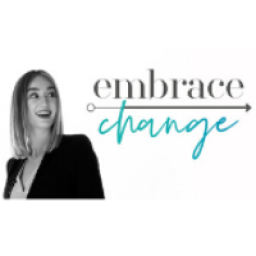"Generational differences in the workplace are a myth."
Are they?
That depends how we approach it.
There's mountains of statistical evidence and theory to prove generational differences in the workplace are a myth and, that we shouldn't treat those that fall into the birth rights of Generation Z and Millennials any differently to Generation X or Baby boomers.
That, I agree with.
So why are Millennials and Generation Z leaving a job 6 months later if we have treated everyone the same? And why are older generations complaining about the younger generations with the 'self-entitled snowflake' labels and vice versa?
Here's the thing.
Generations are not defined by birth years, but by significant events at critical cognitive development stages, usually between the ages of 12 & 20 that shape the shared characteristics and behaviours of a generation. Hence a new generation is born and, the media, or theorists, begin to label it. Everybody has a birth right to a generation but, if we approach the concept that you do not fall into a generation by birth, but by the mindset, behaviours and communication methods you choose to adopt, by constantly embracing change and living this way, you could live in a mindset that constantly adopts efficient change.
In fact, let me really blow your mind. Due to increasing work life expectancy and rapid technological advancements, we could experience generations shorten to only 4-5 years long, which means we could potentially experience up to 15 generational differences operating simultaneously in the workforce by 2080. Crazy, right! This is the concept of a post generational world, where it is not a case of labelling generational behaviours but adopting the characteristics of younger generations and, mentoring the strengths from each generation and individual to stay ahead in a fast paced environment, providing a balance from each perspective and experience. However, the shift to a post-generational world will depend on how quickly people choose to adopt new technologies and practices. Simon Sineck would call them, the 'early adopters' and, the pace of the world depends of the population density of those mindsets.
Right now, we are experiencing the differences and shift between the industrial and digital mindset and, the evidence in practice shows that the generational differences are real. It's the difference between the industrial and digital ways of thinking, communicating and behaving. It's how someone chooses to communicate by letter, email or Snapchat. It's the difference between the platforms we find our jobs and music, the apps we use, the way we shop, game, research, train, learn and date.
In the workplace, we should not look to treat each generation differently, but become open to embracing change and keeping our workforce systems, processes and mindsets as up to date as the next generation coming through. What we tend to be good at is, waiting for the next generation to reach the workforce, not being prepared, changing our systems 10 years too late when the majority of talent has left, then yet again, falling behind for the next generation and feeling like we can't please anyone. So we give up and deal with high staff turnover and a demotivated workforce instead.
Perhaps for Baby Boomers and Gen X'ers many of the Millennial and Gen Z expectations will still be desirable elements at work. However, if we design our strategy around the highest of expectations in our workforce, then we will constantly exceed the expectations of those that carry the original expectations of previous generations. Therefore, creating not only an engaged generation, but an engaged organisation in its entirety. We can't always guarantee it will get better if we change, but we know it can't get better if we don't. The best chance employers have to begin creating an engaged organisation is; identifying the current state of engagement, identifying issues within the organisation that could be blocking the flow of engagement, listen to employee feedback and then, take a holistic approach, with the findings and help from solutions providers to rectifying strategy and systems. We need to create collaborative workforces where we understand what inspires our employees to perform at their natural best and develop a culture where people are ultimately, happy and productive. To prepare for the creation of a collaborative, aligned multi-generational workforce we need to be curious (not angry) about what the younger generations are made of, because they are bringing us the freshest perspective and, they understand the most digitally efficient communication methods and behaviours.
We have so much to learn about employee engagement for the digital mindset and I am on a mission to educate and inspire leaders to understand and adopt the mindset and characteristics of future generations.
A mindset and culture shift within a workplace environment could transform an obedient and compliant workforce into one that's innovative, collaborative, creative and importantly, loyal to our brand and culture. Achieving this also requires us to have the right skills in the right roles and ideally, passionate employees but that's something we can nurture.
I love the quote "Gen Z is not a birth right, it's a choice". This quote inspires people not to judge, label themselves or give an excuse for behaviours, but creates an open mind to what your world and ways of thinking and learning could look like by embracing the future.
To book a speaker session, workshop or consultation with me, Franki Johnson. Contact me right here on Lancashare and connect up with me on LinkedIn.
See you down the road!
Franki.
 Fuel Card Services
Fuel Card Services








